Whenever you enter any museum or gift shop in Egypt, you see the same thing. Either it’s a mummy or a magnet of Nefertari to plaster on your fridge. Egyptian Identity seems to be interlaced with its ancient past. Yet, today’s Egypt is something of an entirely different nature. That is where Cairopolitan comes in.
Located on one of the tree-covered narrow streets of Cairo’s Garden City, you’ll find a tiny little store by the name of Cairopolitan. Opened in 2018 by its founder Ahmed Hefnawy for one simple reason:
“The main goal of this project is to shed the light on the Egyptian Identity through innovative means.”
Via Cairopolitan
Speaking to Nura Ghoneim, one of the shopkeepers of the store, she mentioned how Hefnawy wanted to showcase Egypt through its daily life and daily products and not through its ancient past of Pharaohs and Pyramids. He would take out bits and pieces of what represents Egypt today, like Alexandria’s famous yellow taxis and Egypt’s famous baladi bread (whole wheat flat bread) and transform them into art products that are then displayed in the store.
Ghoneim said that Hefnawy and his partner, Nelly El Sharkaway are the masterminds behind each piece in the store. They are the ones who design the products. Hefnawy would design a product, make a prototype of it that would then get mass produced at certain specialty workshops which are managed by the production manager, Abd El Moneim El Saaed. It’s a full team effort.
In terms of the experience within the store, with its small exterior façade, the rest of the shop will also feel a little tight especially if it’s crowded inside. Once you enter through its door, you would be facing a small corridor-like space lined with products on both sides.
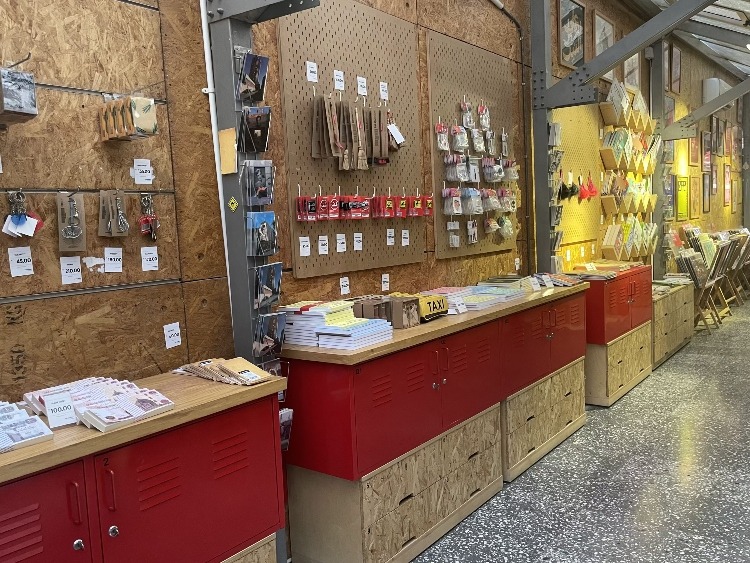
Despite not representing all that is Egypt, the store does offer a great collection of products that shed light on several aspects of the country from its music and food to its domestic and city life:
Cinema and Music
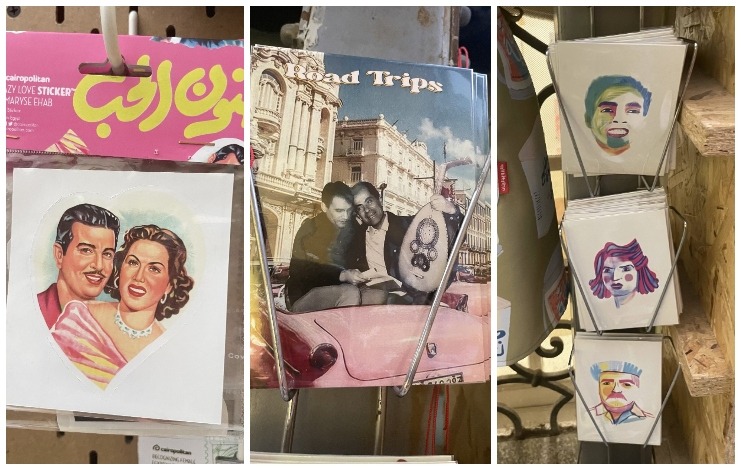
From stickers to postcards, the store celebrates some of the biggest legends of Egyptian golden cinema. Representing love in the form of a sticker, the iconic duo Laila Mourad and Anwar Wagdi starred as lovers in several classic films together during the 50s, from the classic musical “The Flirtation With Girls” to the drama “Upper-Class Daughter.”
Representing the musical heroes of Egypt’s past in a cute postcard are Abdel Halim Hafez, an actor and singer known for his romantic ballads and his renditions of patriotic songs and Farid Al-Atrash, known as the “King of Oud”, composing a wide variety of songs of mixed taste.
Representing the comedic pioneers in Egyptian cinema as colorful caricatures on postcards are the hilarious: Ismail Yassin, known for his highly expressive face and comedic skits; Zeinat Sedki known as the “The Spinister of Egyptian cinema” due to her many roles as a spinster in classic Egyptians films, and Reyad El Kasabgy who shifted from playing villains to taking on comedy along the likes of Ismail Yassin.
Domestic Life
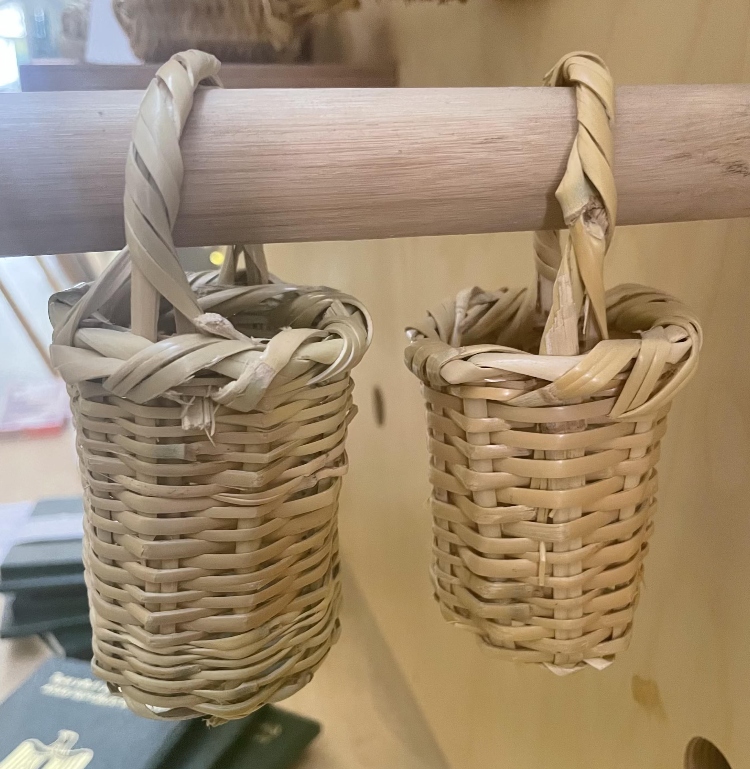
Life in Egypt can also be represented through its household objects. These wicker baskets, made mini here by Cairopolitan, are popular in Egyptian households as an ingenious tool to transport anything from groceries to newspapers from the street all the way to the comfort of your balcony. Usually, a delivery man would arrive at your house, call you to come to the balcony, then you would slowly lower the basket attached to a rope to the man, receive your products, the basket would go up and then the basket would go down again for a second round so that the man can receive his money.
Balconies are a central, bustling hub for many of the day-to-day ongoings of Egyptian life. In the past and even today, some balconies are so close to each other in proximity that neighbors could hang out, drink tea and gossip.
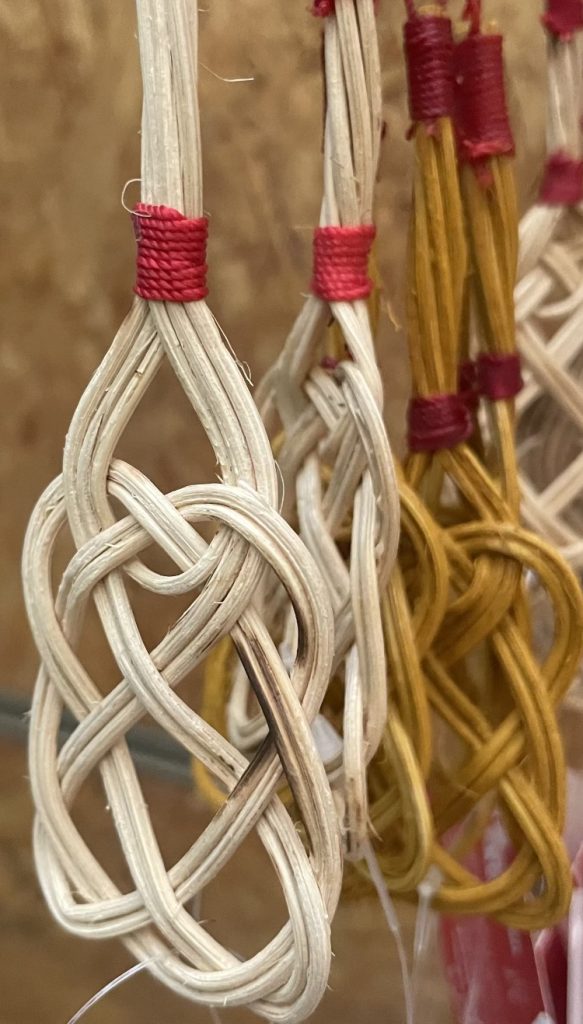
This famous carpet beater is synonymous with Egyptian mothers in balconies, slamming and getting all their frustrations out on a large carpet covered in dust. They would hang the carpet on a large hanger on the balcony and use the beater to remove all the dust and dirt caught in it. Cairopolitan made a mini version of the beater in the form of a keychain. If you are Egyptian, I would not recommend giving this to your mother on any special occasion as it may ignite her carpet-beating wrath.
City Life
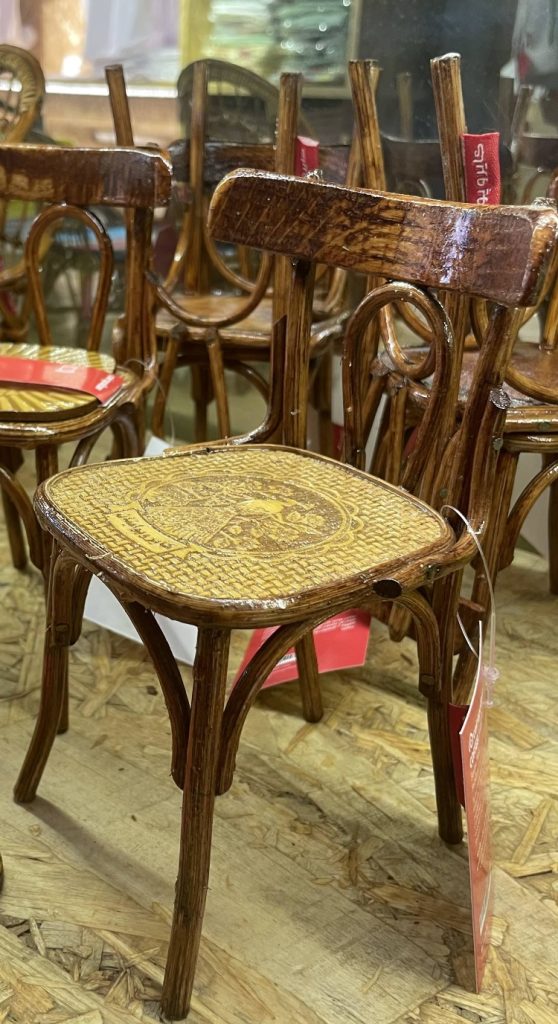
Egyptian city life is unique for being loud, bustling and adventurous. You will find these special chairs (made mini by Cairopolitan) at any Egyptian street cafe known as a “Kahwa.” These spots are iconic where Egyptian men and even women today gather to sit together, have a chat, play backgammon known as “Tawla” in modern Egyptian vernacular and drink Turkish coffee or smoke shisha (hookah). They can stay up until 4 or 5 am in the morning.
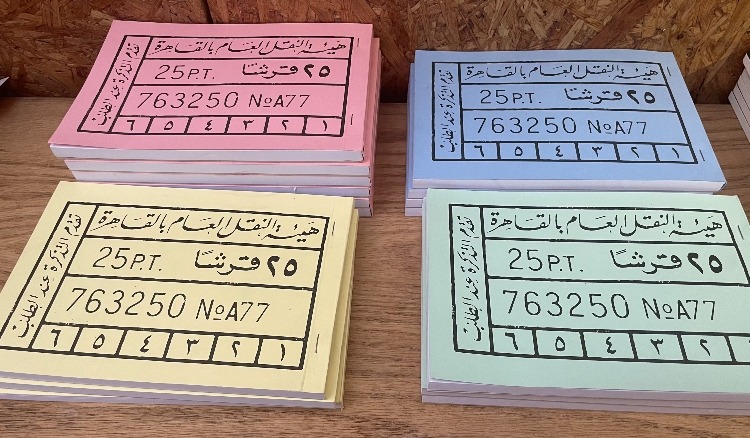
To move around Egypt, most people would rely on buses. Cairopolitan recreated the country’s famous old bus tickets that used to cost 25 piasters, a quarter of an Egyptian pound into large notebooks. Today, the tickets are much higher with the prices starting from 5 EGP. Any Egyptian from the older generations would reminisce when they see these tickets and long for the past when you could go watch a film in the cinema for only 5 EGP.
Food
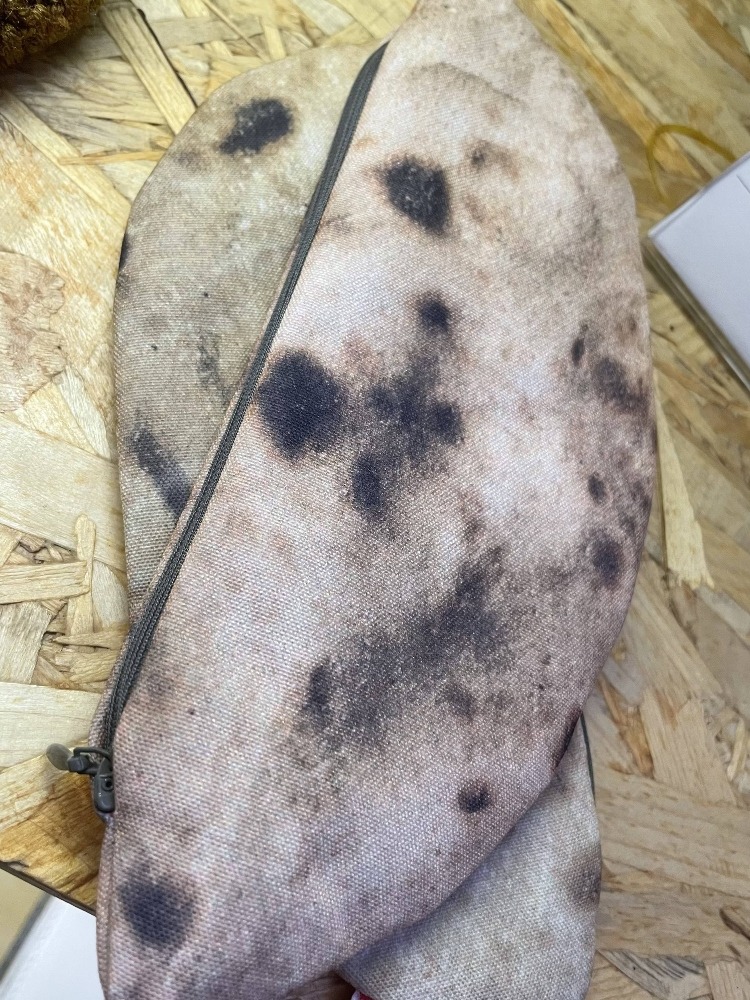
Egyptians love their local food more than anything. Made fresh in any local Egyptian bakery, this bread is a very common staple eaten at any time of the day, especially during breakfast. Its smell would waft out from the bakery and draw people in. Sometimes the baker may even give you a piece to taste right when it’s fresh off the oven. You can have it with falafel, or white cheese, or with ful medamas (refried beans). Cairopolitan hilariously recreated this signature baked good into a large pencil case to be stuffed with pencils rather than the usual piece of cheese.
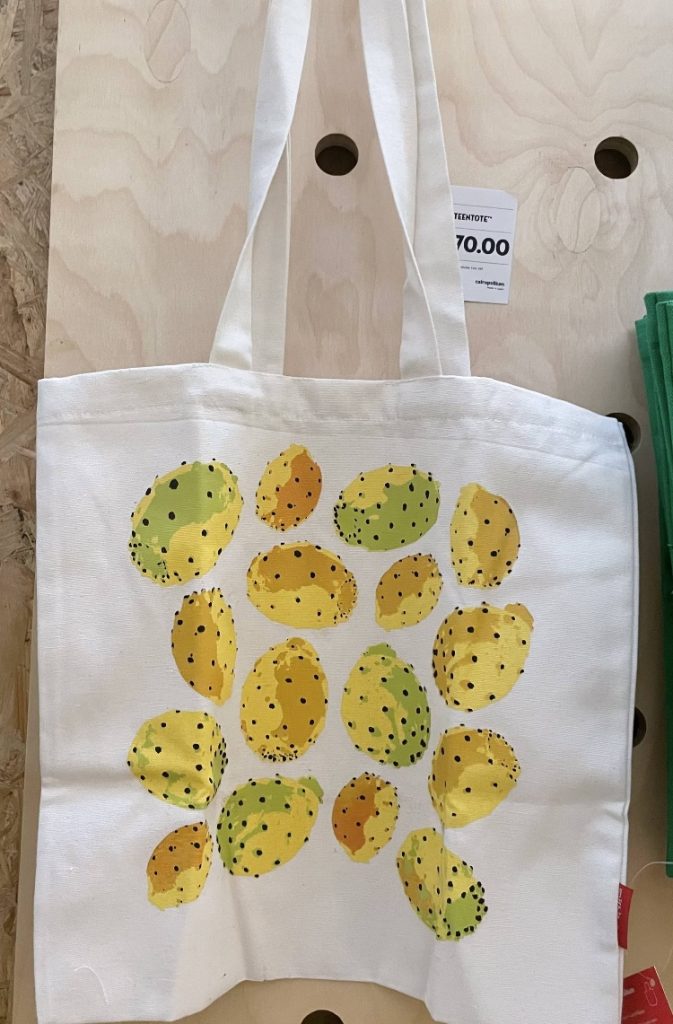
These prickly pears known as “teen shawki”, are loved by all Egyptians. Despite them being a headache to peel because of being covered in sharp barbs, they are pretty refreshing and full of juices. They are a great snack during the summer months especially if they are cold.
It is important to bear in mind that the products can be pretty pricey with the Kasr El Nile Lion costing a staggering 3000 LE. The store probably caters more to foreigners. In fact, Ghoneim mentioned that most of the client base are tourists and foreigners hence why most of the products in the store have these red laminated labels attached to them with short descriptions of what each product represents.
The shop is a good start. Yet, one hopes that over time, these souvenirs and art products would become the norm and would line every shelf of every gift shop. If the prices of the products are also reasonable enough to be bought by both Egyptians and foreigners, that would be an added bonus.
WE SAID THIS: Don’t forget…Egypt’s Enduring Cassette Culture



